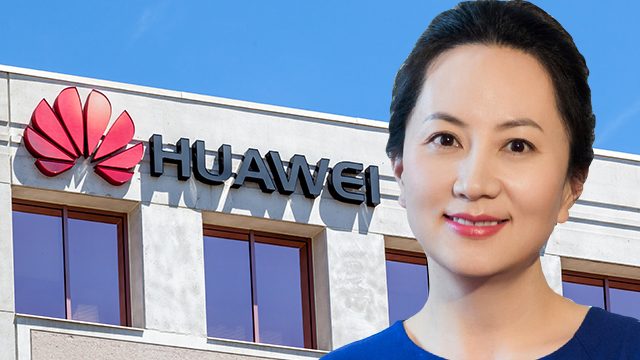SUMMARY
This is AI generated summarization, which may have errors. For context, always refer to the full article.

BEIJING, China – Canada’s arrest of a top executive of Chinese telecom giant Huawei kicked off a diplomatic row that escalated after a Canadian drug smuggling suspect was sentenced to death in China.
Huawei is a strategically key company for China’s global high-tech ambitions but some of its services have been blocked in the United States, Australia, New Zealand and Britain while other countries have stepped up their scrutiny over security concerns. Here are the key dates since the arrest of Huawei’s chief financial officer Meng Wanzhou.
Initial arrest
On December 1, Meng was arrested at the request of US authorities as she was changing planes in Vancouver, a move that infuriated Beijing, which threatened grave consequences if Meng was not freed.
China summoned the Canadian ambassador in protest on December 8 and the US ambassador a day later.
Meng, who is the daughter of Huawei founder Ren Zhengfei, a former Chinese People’s Liberation Army engineer, is accused of lying to bankers about the use of a covert subsidiary to sell to Iran in breach of US sanctions. If convicted, she faces more than 30 years in prison.
She was released on US$7.5 million (Canadian $10 million) bail on December 11, allowing her to stay at a luxury home owned by her husband in Vancouver under electronic surveillance pending her US extradition hearing.
Detentions in China
On December 10, China detained Michael Kovrig, a former Canadian diplomat employed by think tank International Crisis Group (ICG) and business consultant Michael Spavor under suspicion of “engaging in activities that threatened China’s national security.”
US President Donald Trump said on December 11 he could intervene in the US case against Meng if it helps seal a trade deal with China – statements that displeased Canada, which denied that politics played a role in Meng’s arrest.
China confirmed on December 20 that a 3rd Canadian, Sarah McIver, was arrested for “working illegally,” but Canadian authorities have said that appears to be a routine visa case and she was since released and returned to Canada.
The arrests of Kovrig and Spavor are widely seen by observers as retaliation for Meng’s detention. Canada called for their immediate release and appealed to allies for support in securing their release on December 22.
Ottawa said on January 3 that 13 Canadians had been detained in China since Meng’s arrest, with 8 subsequently released.
‘Arbitrary detention’
Canadian Prime Minister Justin Trudeau and US President Donald Trump denounced China’s “arbitrary detention” of 2 Canadians during a telephone call on January 7, according to officials.
Britain, France, Germany and the European Union have all also issued statements expressing concerns about the arrests.
Arrest in Poland
Poland said on January 11 it had arrested Wang Weijing, a Huawei director suspected of spying for China, in another high profile arrest for the company.
While China expressed concerns about the case, Huawei said Wang’s alleged actions had no relation to the company and quickly fired him.
Death sentence
On Monday, diplomatic tensions were heightened when a court in northeast China sentenced Canadian Robert Lloyd Schellenberg, 36, to death at a hastily scheduled retrial after his previous 15-year prison term for drug trafficking was deemed too lenient.
Schellenberg was detained well before the diplomatic feud, back in 2014, with the initial sentence passed down in November.
But in December, following an appeal, a high court in Liaoning province ruled that the sentence did not fit the severity of his crimes and ordered the new trial.
Following the death sentence, Canada updated its travel advisory for China, warning citizens of the “risk of arbitrary enforcement of local laws”.
In response, China Tuesday warned its citizens of the “risks” of travel to Canada after what it called the “arbitrary” detention of Meng. – Rappler.com
Add a comment
How does this make you feel?
There are no comments yet. Add your comment to start the conversation.